Department Directory
Get to know our community!
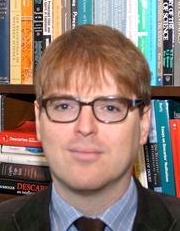
Zvi Biener
Professor (F2), Philosophy
5253 CLIFTCT
He is Editor-in-Chief of the PhilSci-Archive and the Vice-President and President-Elect of the International Society for the History of Philosophy of Science (HOPOS).
Dr. Biener's work is in historical philosophy of science. Other work includes philosophy of data, AI, and empirical research into loneliness.
See personal website here.
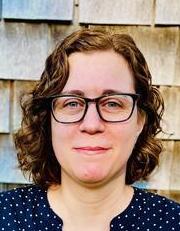
Vanessa Carbonell
Professor (F2), Philosophy
5213 CLIFTCT
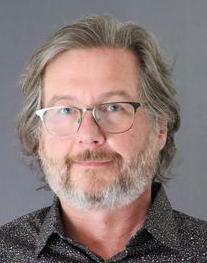
Tony P Chemero
University Distinguished Research Professor of Philosophy and Psychology , Philosophy
5255 CLIFTCT
Currently, Tony is University Distinguished Research Professor of Philosophy and Psychology at the University of Cincinnati (UC), and a primary member of both the Center for Cognition, Action, and Perception and the Strange Tools Research Lab. His research is both philosophical and empirical; typically, it tries to be both at the same time. He focuses on questions related to nonlinear dynamical modeling, ecological psychology, complex systems, phenomenology, and social cognition. He is the author of more than 100 articles and the books Radical Embodied Cognitive Science (2009, MIT Press) and, with Stephan Käufer, Phenomenology (2015, Polity Press; second edition, 2021). He is currently writing a book tentatively titled Intertwinings: The embodied cognitive science of self and other (Columbia University Press). His first book was a finalist for the Lakatos Prize for Philosophy of Science. He has recently received the University Distinguished Research Award, the Latino Faculty Association Excellence in Research Award , and the Rieveschl Award for Scholarly Achievement at UC.
For more information, see Tony's pages at academia.edu or google scholar
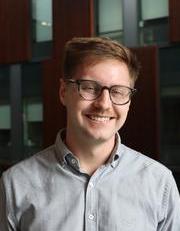
Andre Emile Curtis-Trudel
Asst Professor (F2), Philosophy
CLIFTCT
More information and links to papers can be found on my website.
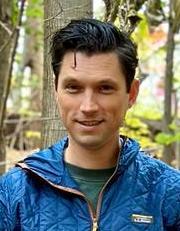
Lucas D Dunlap
Assoc Professor - Educator (F2), Philosophy
5251 CLIFTCT
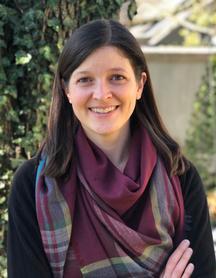
Melissa Jacquart
Asst Professor (F2), Philosophy
CLIFTCT
Please visit my website for more information on my research and teaching: melissajacquart.com
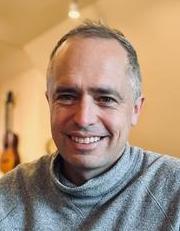
Peter M Langland Hassan
Director of Graduate Studies | Philosophy of Mind, Philosophy of Psychology, Cognitive Science, Philosophy
5256 CLIFTCT
Langland-Hassan arrived at UC in 2011 after spending two years as a Postdoctoral Researcher in the Philosophy-Neuroscience-Psychology program at Washington University in St. Louis. He received his Ph.D. in philosophy in 2009 from The Graduate Center of the City University of New York, and his B.A. in philosophy from Columbia University in 1997.
More information is available on his personal website: http://langland-hassan.com
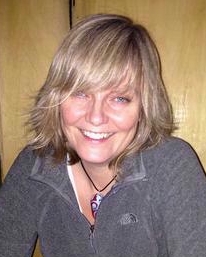
Heidi Lene Maibom
Professor, Philosophy
ARTSCI
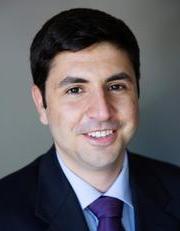
Eduardo Joseph Martinez
Asst Professor (F2), Philosophy
5254 CLIFTCT
My research is in democratic theory and focuses on standards for evaluating institutions and practices within democracies, such as administrative agencies, civic education, representation, and political partisanship. For more on my research, please see my website: eduardojmartinez.com

Helen Meskhidze
Asst Professor (F2), Philosophy
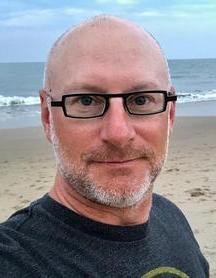
Thomas W. Polger
Philosophy of Mind, Metaphysics, Philosophy of Cognitive and Brain Sciences, Philosophy
5252 CLIFTCT
As I see it, the questions that arise around the cognitive and brain sciences amount to a special case of the general puzzle of why we have various sciences rather than just one. Why is there anything but physics?
In the process of investigating questions about minds, brains, and sciences we may come to wonder about the kinds of theorizing that we do, and about the evidence and arguments that we employ. How do the methods of philosophy fit with other forms of inquiry. And how is philosophical knowledge possible?
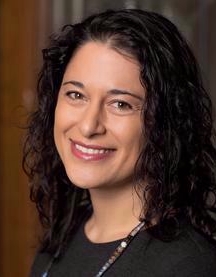
Angela Potochnik
Department Head; Professor; Director of the Center for Public Engagement with Science, Philosophy
5215 CLIFTCT
Visit Potochnik's website.
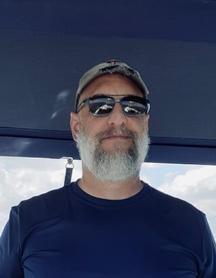
Robert A Skipper
History and Philosophy of Biology, Philosophy of Science, Philosophy
261C ARTSCI
Skipper's main research focuses on the origins and development of evolutionary genetics. In particular, he works on problems about the structure of biological controversies, theory change, theory/model assessment, theory/model structure/interpretation, evolutionary dynamics, biological explanation, and epistemology of biological experiments.
In addition, Skipper has interests in environmental philosophy, philosophy of food, and obesity science.

Taylor Pincin
Post Doc Fellow, A&S Philosophy
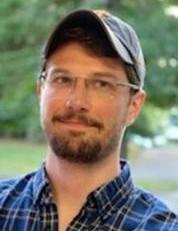
Donnie Barnett
Post Doc Fellow, A&S Philosophy
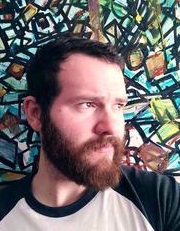
Matthew A Willis
Asst Professor - Adj (F9), Philosophy
ARTSCI
I am also interested in the work of WVO Quine and the history of early analytic philosophy (especially where Frege, Russell, and Carnap are concerned).
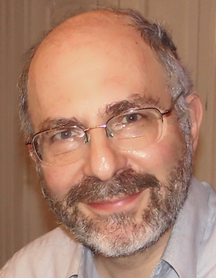
Steven Joel Cahn
Professor of Music Theory, CCM Music Theory
4225G Emery Hall
- Schoenberg Studies/Twentieth-Century Music Theory
- Neuroscience/Psychology of Music
- Aesthetics, Hermeneutics & Theories of History
- History of Music Theory
- Musical Form in the 18th and 19th Centuries
- Cultural Studies & Jewish Music Studies
His work appears in collections—Schönberg-Handbüch; Festschrift for Leo Treitler (SMT Outstanding Publication, 2023); Jewishness, Jewish Identity and Music Culture in 19th-Century Europe; Cambridge Companion to Schoenberg; Schoenberg and Words; Schoenberg: Interpretationen seiner Werke:—and journals—Musical Quarterly, Journal of the Arnold Schoenberg Center, Journal of the American Musicological Society, Opera Quarterly, Ostinato rigore. His collaborative research has been published in Cognitive Neuropsychology (DOI: 10.1080/02643294.2011.646972) and the Journal of the American Academy of Audiology (DOI: 10.3766/jaaa.24.1.6). An essay that will appear in Schoenberg in Context (Cambridge University Press) is forthcoming.
Cahn has received research support from the Avenir Foundation, the Tangeman Sacred Music Center, the Dean’s Travel Fund, the National Institutes of Health — Lab for Integrative and Medical Biophysics, the National Endowment for the Humanities (Summer Seminar Stipend), and the University Research Council, Faculty Research Support Grant. He has presented papers at international conferences including the Israel Musicological Society (invited keynote, 2021), Jewishness and the Arts (Rome, 2015), Schoenberg at 140 (Canterbury, UK, 2014), Hebrew University (2013), Symposia of the Arnold Schoenberg Center (Vienna, 2001, 2002) and the Third International Conference on Jewish Music (SOAS, London 2000). In the U.S., he has presented papers at the Getty Center, the Library of Congress, and the National Institutes of Health. He has also presented research at the annual meetings of the American Musicological Society, Society for Music Theory, Music Theory Midwest and International Conference on Music Perception and Cognition (ICMPC8).
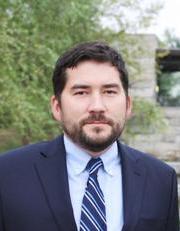
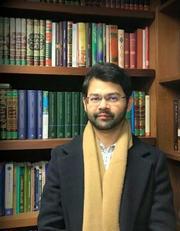
Muhammad U. Faruque
Associate Professor, A&S Romance & Arabic Languages & Literat
5240 CLIFTCT
A global philosopher who has lectured widely across North America, Europe, the Middle East, and Asia, his books and academic articles have been translated into numerous languages and have been recognized by important funding bodies across the United States, such as the Templeton Foundation and the US Department of Education. He has presented lectures at Harvard, Princeton, Cambridge, Stanford, UC Berkeley, and the University of Chicago. He was recently honored with the Young Investigator Award. He gives public lectures on a wide range of topics such as the environmental crisis, consciousness, spirituality, meditation, AI, Islamic psychology, and Islam and the West.
His first book Sculpting the Self (University of Michigan Press, 2021) received the prestigious World Book of the Year Award. The book addresses “what it means to be human” in a secular, post-Enlightenment world by exploring notions of selfhood and subjectivity in Islamic and non-Islamic philosophical literatures, including modern philosophy and neuroscience. He is the author of five books and over fifty-five academic articles, which have appeared (or are forthcoming) in numerous prestigious, peer-reviewed journals and edited volumes. His forthcoming book The Interconnected Universe (University of Pittsburgh Press) aims to develop a new theory of the human, the climate, and the more-than-human world based on a transdisciplinary approach, combining the tools and methods of the environmental humanities, climate science, ecological economics, and Sufi philosophy. Alongside serving as Co-Editor of the Studies in Islamic Thought book series (Brill) and the journal Islamic Intellectual Traditions (Brill), Dr. Faruque is currently working on several major projects. One of them is dedicated to AI and the existential threat of information technology, and the other is a contemporarily accessible introduction to the famous Safavid philosopher Mulla Sadra entitled, Why Read Mulla Sadra Today? (Cambridge University Press). He has also recently co-edited two volumes: I of the Heart (with A. Khalil and M. Rustom, Brill) and From the Divine to the Human (with M. Rustom, Routledge).
In his personal life, he loves gardening (plant life fascinates him), spending time in nature, travelling (he always likes to explore new places), trying out new cuisines, hiking, cooking, sports (esp. tennis, table tennis, and chess), and watching movies. He also has a passion for classical Indian (raag) and Persian music.
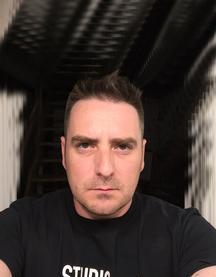
Kristopher J Holland
Associate Professor, DAAP School of Art
4280C Aronoff Center
He is the Co-Director of the Strange Tools Research Lab at the Digital Futures research collaborative located in the University of Cincinnati. This research lab combines artistic and philosophical inquiry to create new tools to engage with multi-disciplinary problems. He is also the Director of the Graduate program in Art & Design Education and the Director of the Visual Arts & Design Education State Licensure for the College of Design, Architecture, Art, and Planning. He Previously was the director of Art and Publications for the Žižekian Institute for Research, Inquiry, and Pedagogy. He also is involved with the biannual (pre-covid) Berlin Summer Studio Arts Inquiry program in collaboration with the Weißensee Kunsthochschule Berlin.
As a visiting professor at the Karl Franzens University’s Institut für Kunstgeschichte in Graz Austria he has taught courses on a range of subjects including: Joseph Beuys, The Vienna Secession, Baroque Art and Knowledge, Artful Science, Philosophy of Technology, The Black Radical Tradition, Photography and Video Art, Object Orientated Ontology, and Political Theory as Art Production.
Dr. Holland is a practicing artist and philosopher whose current research interests are: strange tools, philosophical inquiry methodologies, arts-based research, art & design teacher education, deconstruction, contemporary art, and critical theory. His conceptual art work The Habermas Machine was cited in James Rolling Jr.’s Arts-Based Research: A Primer, published in 2013 and was exhibited in 2015. He has recently given guest lectures at the School of Visual Arts in New York on strange tools and philosophy without text, and New York University’s Steinhardt School of Culture, Education, and Human Development on the topic of Jean Baudrillard and Radical Education which corresponds with his recently published co-authored book: Jean Baudrillard and Radical Education Theory: Turning Right to Go Left.
His peer-reviewed publications can be found in: The Journal of French and Francophone Philosophy [Revue de la philosophie française et de langue française], Adaptive Behavior, Visual Arts Research Journal, The Journal of Social Theory in Art Education, Studies in Art Education, and the International Journal of Žižek Studies. By combining the fields of philosophy, art, and education, his work seeks to spark agency for students in the creative fields for social change and educative innovation.
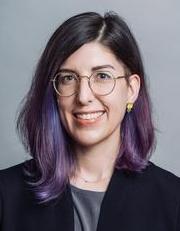
Elizabeth Lanphier
Assistant Professor of Clinical-Affiliate, COM Pediatrics General Pediatrics
Childrens Hospital Bldg R
In addition to her published scholarship in peer reviewed journals and book volumes, Elizabeth has written for a variety of outlets including the Hastings Bioethics Forum and Ms. Magazine. Her research has also been featured in "The ethical questions raised by COVID-19 vaccines: 5 essential reads" and "50 years after Roe, many ethics questions shape the abortion debate" in The Conversation as well as "What is Trauma Informed Care?" in Health, and "We're All Second Guessing Ourselves" in The Atlantic. She was quoted in TIME Magazine for the article "How Do You Even Calculate Covid-19 Risk Anymore?" and was an expert cited in "Motivated Reasoning: Emily Oster's COVID Narratives and the Attack on Public Education" in Protean Magazine.
Elizabeth is currently a Co-Director for the Humanities & Arts Interdisciplinary Pathway and a faculty mentor for the Medical Ethics Club at the University of Cincinnati College of Medicine and from 2023-2026 is part of the Narrative Medicine, Compassionate Arts, and Healing Faculty Research Group at the Taft Center at the University of Cincinnati.
She is also the Vice President of the Bioethics Network of Ohio and a steering committee member and Ethics Lead for the Institute for Research in Sensing. Previously Elizabeth chaired the Committee on Accessibility and Inclusion for the North American Society for Social Philosophy and from 2021-2024 she was a co-chair of the Feminist Approaches to Bioethics Affinity Group for the American Society of Bioethics and Humanities.
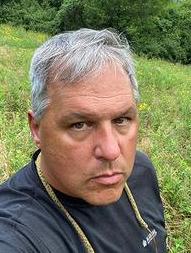
Kenneth Petren
Professor, A&S Biological Sciences
800C Rieveschl Hall
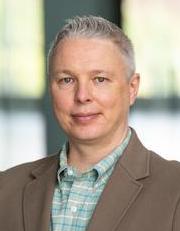
Michael A. Riley
CAHS Rehab, Exercise & Nutrition Science
292B HSB
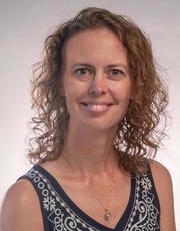
Sarah M Stitzlein
Professor, CECH Curriculum & Instruction
610F Teachers College
I am a Professor of Education and Affiliate Professor of Philosophy at the University of Cincinnati. As a philosopher of education, I use political philosophy to uncover problems in education, analyze educational policy, and envision better alternatives. I am especially interested in issues of political agency, educating for democracy, and equity in schools. I consider how to best educate citizens, with special attention to addressing current struggles in democracy related to matters of truth, political dissent, polarization, populism, and political hope.
I am Senior Editor of the journal, Democracy & Education. I served as President of the Ohio Valley Philosophy of Education Society and the John Dewey Society.
I have received the the University of Cincinnati Jack Twyman Award for Service Learning, the Distinguished Teaching Award, and Golden Apple awards. At my previous university, I earned the University of New Hampshire Outstanding Professor award. I am also the recipient of the American Association of University Women Postdoctoral Research Fellowship and the National Endowment for the Humanities Teaching Development Fellowship.
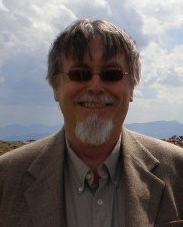
Timothy W. Allen
Social and Political Philosophy, Democratic Theory, Ancient Philosophy, Philosophy of Law, Critical Thinking, Existentialism, Business Ethics, Philosophy
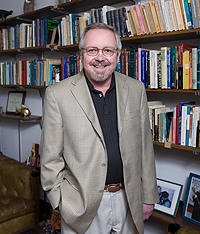
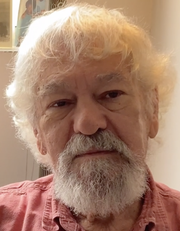
Lawrence J Jost
Ethics, Ancient Philosophy, Marx, Philosophy
259A ARTSCI
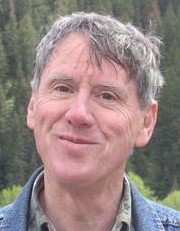
John Martin
McMicken Professor Emeritus. Areas of Specialty: Formal Semantics, History of Logic, Environmental Ethics., Philosophy
Formal Semantics, History of Logic, Environmental Ethics
Click here for Martin's HOMEPAGE
John McEvoy
History, Philosophy and Sociology of Science and Technology, Marx, Foucault, Althusser, Philosophy
John McEvoy works in science studies and political philosophy. He has published extensively on the history and philosophy of science, focusing mainly on the Chemical Revolution, which occurred in the eighteenth century and is generally regarded as the origins of modern chemistry, and twentieth-century interpretations of this important event. He is currently working on more general issues pertaining to the historiography of science and is keen to show how the discipline of the history of science is shaped by wider philosophical and cultural influences. McEvoy also teaches political philosophy, focusing on the classical texts of Marx and Engels and the twentieth-century writings of the Frankfurt School, Foucault, and Althusser. He also teaches courses on the philosophy of technology and the historical and philosophical relations between magic, science, and the occult. His analysis of the 'history of the history of science' since World War Two is available in The Historiography of the Chemical Revolution: Patterns of Interpretation in the History of Science (London: Pickering and Chatto, 2010).
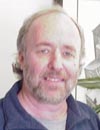
Robert C. Richardson
Charles Phelps Taft Professor | Philosophy of Biology, Philosophy of Science, Cognitive Science, Philosophy
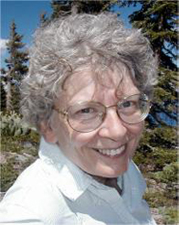
Jenefer Mary Robinson
Aesthetics, Philosophy of Psychology (emotion theory), Philosophy
For more information, please see her personal website
Leo Simons
Philosophy
William L Todd
Philosophy
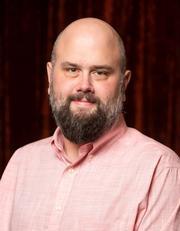
Max William Cormendy
Program Director, Philosophy
5210 CLIFTCT
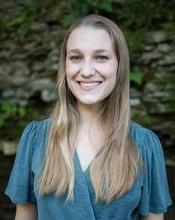
Kate Nicole Hoffman
Post Doc Fellow, Philosophy
ARTSCI
For more, see her personal website.
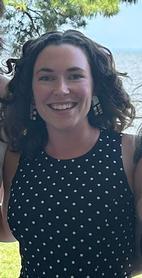
Madeline Yelle Jentsch
Program Coordinator, Philosophy
360D ARTSCI
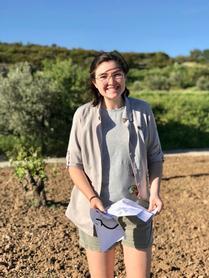
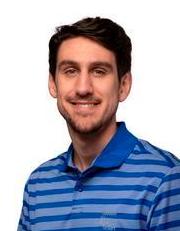
Cam Kruse
Program Director, Philosophy
360D ARTSCI
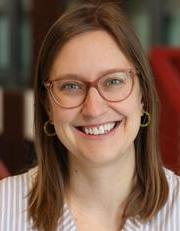
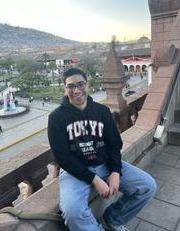
Erik Jefferson Alvarado Quinteros
Graduate Assistant, A&S Philosophy Students
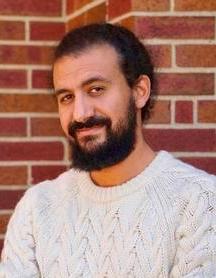
Ramy Amin
Graduate Assistant, A&S Philosophy Students
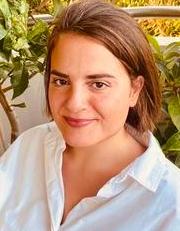
Fotini Charalabidou
Graduate Assistant, A&S Philosophy Students
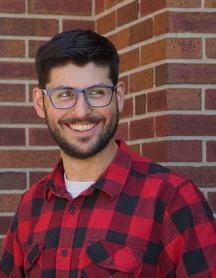
Clif John-Diego Clemotte
Graduate Assistant, A&S Philosophy Students
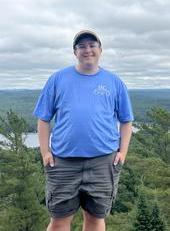
Noa Dahan
Graduate Assistant, A&S Philosophy Students
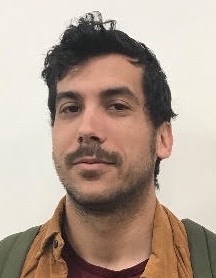
Vincent James del Prado
Instructor - Adj Ann, A&S Philosophy Adjuncts
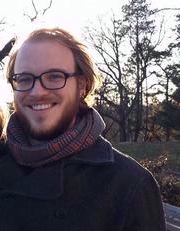
Kyle Keenan Furlane
I also teach pre-college philosophy (or "philosophy for children") around Cincinnati in elementary schools and high schools.
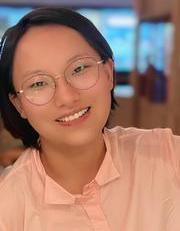
Qianrong Gong
Graduate Assistant, A&S Philosophy Students
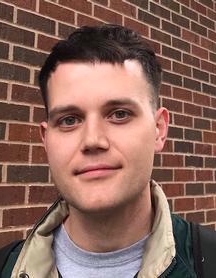
Brad Aaron Griggs
Instructor - Adj, A&S Philosophy Adjuncts
ARTSCI
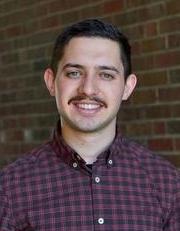
Ilir Isufi
Graduate Assistant, A&S Philosophy Students
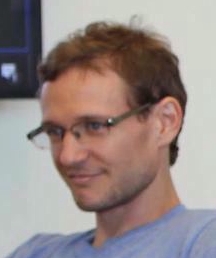
Jonathan Christopher Kanzelmeyer
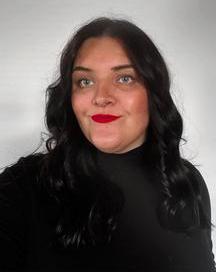
Brianna Larson
Graduate Assistant, A&S Philosophy Students
Brianna is the Lab Coordinator for UC's Philosophy for Children Group where she builds philosophy curriculum for 5th and 6th-grade classrooms and facilitates classroom lessons at Clifton Area Neighborhood Schools. In addition, she is a graduate fellow at the Cincinnati Ethics Center, where she has been doing Ethics Bowl programming with students ranging from 3rd grade to 12th grade for three years.
M. Shane Li
Graduate Assistant, A&S Philosophy Students
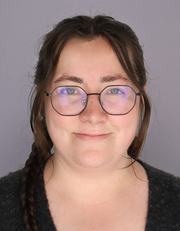
Vanessa Taylor Petersen Lovato
Graduate Assistant, A&S Philosophy Students
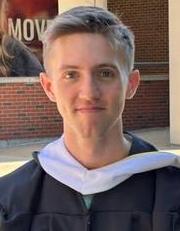
Timothy Patrick Luft
Graduate Assistant, A&S Philosophy Students
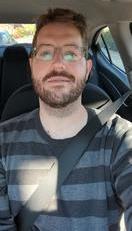
Daniel Elgin Mattox
I am happy to answer questions from prospective students about the philosophy department! Please feel free to email me.
My primary research interests are at the intersection of life, mind, and value; I am especially interested in exploring how the life/mind continuity of enactivism can be extended to account for value theory and serve as the groundwork for a new kind of virtue ethics and moral psychology. Beyond my main research areas, I have interests in political philosophy, metaphysics, epistemology, critical theory in the humanities and social sciences, and public humanities. My research also draws on global literatures across disciplines and is empirically informed.
I have worked for 4 years at the University of Cincinnati Press. I started in my first year as a Graduate Assistant working in acquisitions and have since been working as an Assistant Editor working on special projects for the press. I have managed the peer review process for several manuscripts, reviewed manuscript proposals, worked as a developmental editor, and done almost every part of the acquisitions process.
I regularly participate in the Research and Discussion Group for the Center for Public Engagement with Science, the Ethics Journal Club, and the annual European Studies Workshop. I was previously the facilitator for the Undergraduate Philosophy Club, I am currently the coach of the first University of Cincinnati Ethics Bowl Team, and sometimes a participant in the Graduate-Undergraduate Research Mentorship program.
In my spare time I like to bake and cook, feed random street cats, and volunteer with local nonprofits and political campaigns. I’m also an AmeriCorps alumnus and an Honorary Kentucky Colonel.
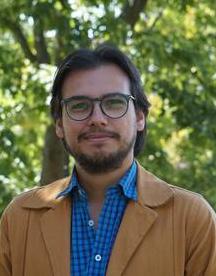
Carlos Andres Munoz-Serna
Graduate Assistant, A&S Philosophy Students
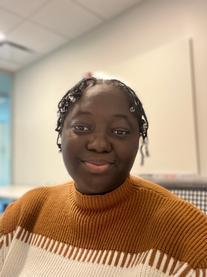
Damilola Victoria Oduola
Graduate Assistant, A&S Philosophy Students
My research spans three broad areas: (1) bioethics and health policy, where I explore topics like weathering, biological oppression, medical brain drain, and compulsory service programs; (2) qualitative bioethics, where I’m interested in how methods like interviews and focus groups can help us answer ethical questions in public health and policy; and (3) philosophy and civic engagement, where I explore how philosophical thinking can be applied to real-world problems, democratic discourse, and civic life.
I am passionate about contributing to ethics and policy committees, supporting the development and implementation of health policies, and advancing research that is both critically engaged and socially relevant.
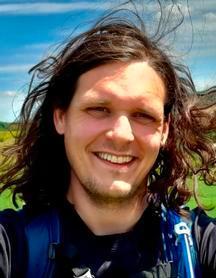
Zachary Daniel Peck
Graduate Assistant, A&S Philosophy Students
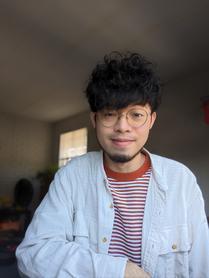
I-Jan Wang
Graduate Assistant, A&S Philosophy Students
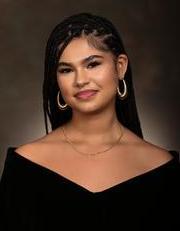
Valencia Duplessis White
Graduate Assistant, A&S Philosophy Students
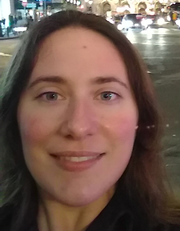
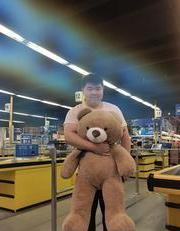
Jianlang Yin
Graduate Assistant, A&S Philosophy Students
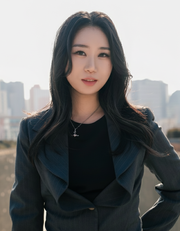
Sharon Yoon
Graduate Assistant, A&S Philosophy Students
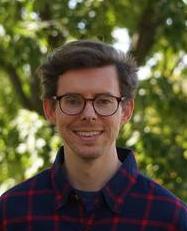
Kyle J Yrigoyen
Student Associate, A&S Philosophy Students